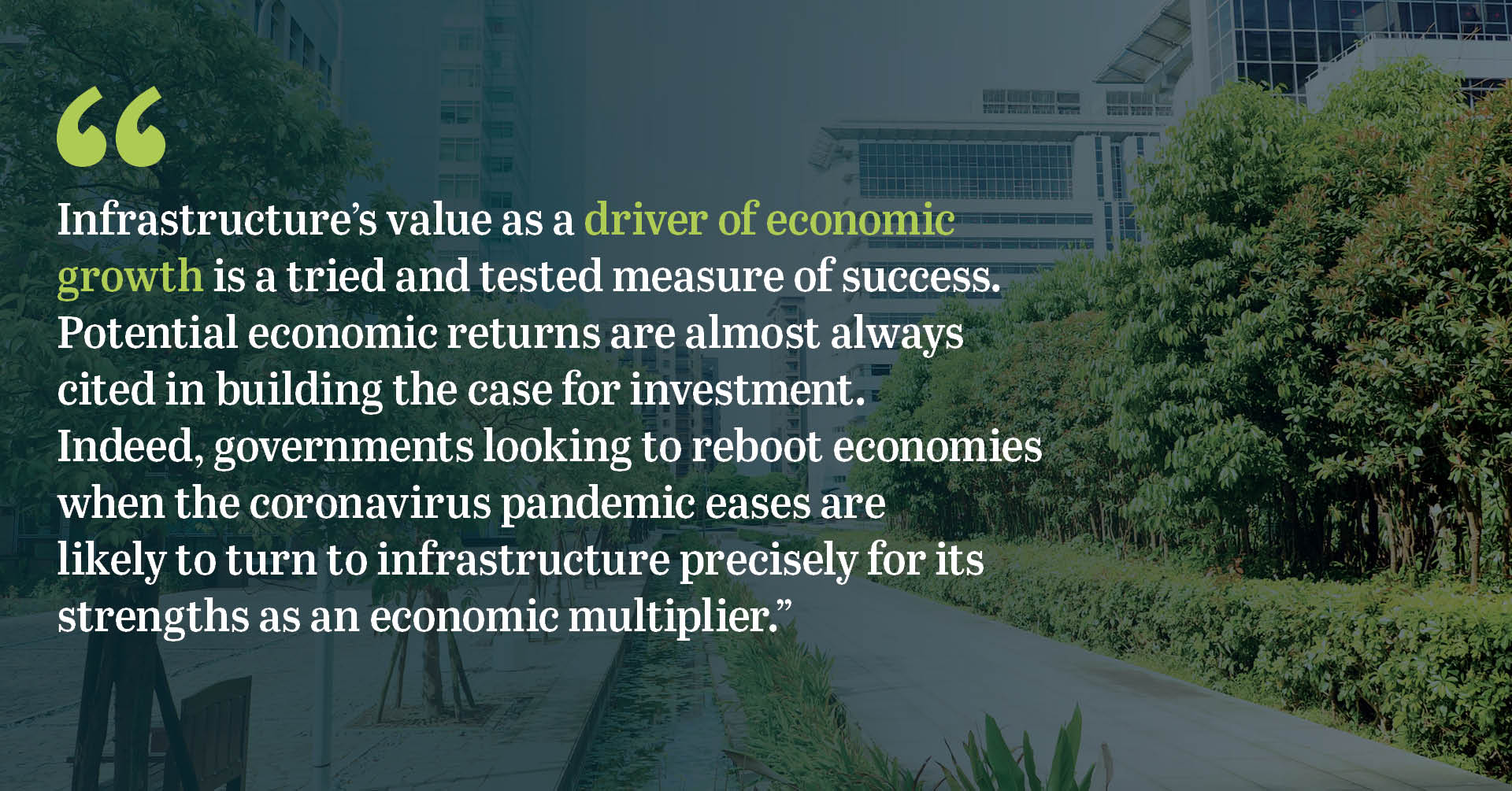Lara Poloni President, AECOM
As we look towards recovery, infrastructure has an important role to play in getting the economy moving again, but it can also open up new opportunities and improve quality of life for those hurt by coronavirus.
In the American city of Atlanta, an abandoned railroad track turned pedestrian path is connecting communities and erasing a redline that once separated them.
In the United Kingdom, a new crosstown rail line is not only expected to improve the commute into London; it may also help some residents live longer by connecting poorer parts of the city with the economic opportunities in the centre.
In China, restoring a river running through the centre of Nantong is enhancing the sustainability of this industrial port city and improving the wellbeing of the local population.
What connects these projects? Each one delivers ’social impact’ dividends and addresses pressing challenges that extend value beyond the more traditional economic benchmarks guiding most of today’s infrastructure investment.
In making the case for infrastructure, social benefits tend to fit the ‘nice to have’ category. In part, this is because they are harder to measure — making success harder to claim. But when it comes to extending value for communities looking to rebuild and adapt to our new normal, social returns are essential.
If the crisis prompts a re-appraisal of societal concerns — as we think it will — it is likely that social needs will receive more attention in future. According to psychologist Abraham Maslow’s influential theory on the hierarchy of needs, many people will shift toward a greater appreciation of benefits such as protecting public health, correcting social inequities, improving access, boosting quality of life, and enhancing wellbeing.
The move to consider social value has been building for some time due to a variety of factors. Moved to action by climate change worries, the public has been applying greater pressure on corporations and governments to do right by society in their investment decision-making. Companies are finding that a strong environment, social and governance (ESG) proposition can drive value and safeguard long-term success. And governments — mindful of the inextricable link between physical infrastructure and public benefits — are also setting terms during the procurement process that require greater social value considerations, like developing new skills in local populations.
In the wake of tragic and massive fires and hurricanes around the world, cities have been increasing investment in the resilience of physical systems, a proper assessment of which covers social as well as environmental pressures. Dealing with coronavirus is testing some of those systems to the maximum.
In the future, what’s needed is a greater focus on developing standardised, accepted measurement tools to better quantify direct and indirect social impacts. Environmental rating systems provide an organised framework and standardised metrics for measuring performance. If a similar system were developed for social impact, it would offer insight into, extend advocacy for, and showcase projects that are not just best in the world, but best for the world.
